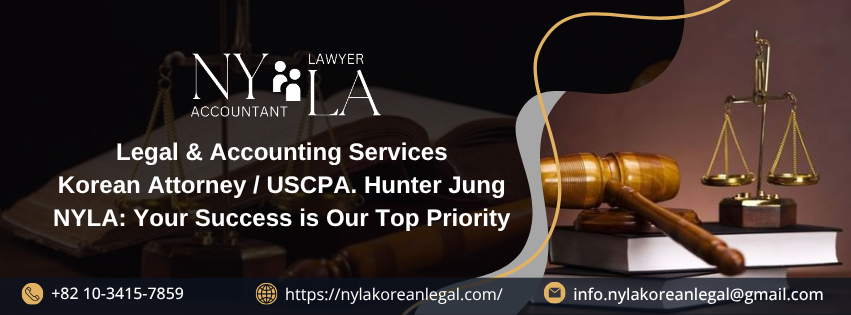In South Korea, business owners who fail to pay wages on time are subject to legal scrutiny under the Labor Standards Act. The question arises: should employers violating delayed wage payments be publicly disclosed? The answer to this question lies within the framework established by the Act, which seeks to protect employees’ rights and ensure fair practices in the workplace. In this article, we will explore the conditions under which employers violating delayed wage payments may be publicly disclosed, the process of such disclosure, and the legal basis behind it.
Summary
- 1. Legal Basis: The Labor Standards Act
- 2. Conditions for the Disclosure of Employers Violating Delayed Wage Payments
- 3. Exceptions to the Disclosure of Employers Violating Delayed Wage Payments
- 4. Explanation Period for Employers Violating Delayed Wage Payments
- 5. Establishment of Review Committee for Employers Violating Delayed Wage Payments
- 6. Additional Matters for the Disclosure of Employers Violating Delayed Wage Payments
- 7. Conclusion: Ensuring Fair Treatment of Employees and Accountability for Employers Violating Delayed Wage Payments
- 8. Key Takeaways
- 9. About NYLA – Korean Legal Office
1. Legal Basis: The Labor Standards Act
The Labor Standards Act serves as the legal foundation for protecting the rights of workers in South Korea, ensuring that employers comply with wage payment requirements. One of the most critical provisions of this Act is its stance on employers violating delayed wage payments. When business owners consistently fail to meet their wage obligations, they face legal consequences that could result in public disclosure of their actions. This provision is designed to encourage businesses to comply with wage laws, thereby protecting the interests of employees.

2. Conditions for the Disclosure of Employers Violating Delayed Wage Payments
The Labor Standards Act specifies the criteria for when business owners with delayed wage payments can be publicly disclosed. To meet the legal requirements for disclosure, the following conditions must be fulfilled:
- Conviction History: The business owner must have been convicted at least twice within the last three years for failing to pay wages, compensations, allowances, or other money owed to employees.
- Unpaid Wage Amount: The total amount of unpaid wages and related dues during the year prior to the disclosure date must exceed 30 million won. This ensures that the disclosure is made only in cases where there is a significant violation of wage payment laws.
If these conditions are met, the Minister of Employment and Labor has the authority to disclose the personal information of the business owner, including their name and details of the violation. This serves as a deterrent for businesses considering neglecting their wage obligations.

3. Exceptions to the Disclosure of Employers Violating Delayed Wage Payments
However, there are exceptions to the rule. If the disclosure of the business owner’s name is not effective due to the death of the owner, the closure of the business, or other specific circumstances outlined by a Presidential Decree, the information will not be disclosed. This ensures that only relevant and actionable information is made public, and businesses that are no longer in operation or owners who have passed away are not unfairly penalized.
4. Explanation Period for Employers Violating Delayed Wage Payments
Once the name of an employer violating delayed wage payments is publicly disclosed, the Minister of Employment and Labor is required to provide the business owner with an opportunity to explain their actions. This explanation period lasts for at least three months, allowing the employer to present their case or take corrective actions. The purpose of this provision is to ensure that business owners are given a fair chance to clarify their position before facing further legal consequences.
5. Establishment of Review Committee for Employers Violating Delayed Wage Payments
In order to review whether the personal information of an employer violating delayed wage payments should be disclosed, a Review Committee for Information on Overdue Wages is established within the Ministry of Employment and Labor. The committee is responsible for evaluating the situation and ensuring that the disclosure is justified based on the specific circumstances of the case. The structure, operation, and other details regarding the committee’s function are prescribed by an ordinance from the Ministry of Employment and Labor.

6. Additional Matters for the Disclosure of Employers Violating Delayed Wage Payments
The Labor Standards Act also stipulates that the details, period, and method of the disclosure of an employer’s name must be in accordance with a Presidential Decree. This ensures that the disclosure process is transparent, fair, and consistent across all cases. The specifics regarding how and when the disclosure takes place are outlined in this decree, providing a clear legal framework for the process.
7. Conclusion: Ensuring Fair Treatment of Employees and Accountability for Employers Violating Delayed Wage Payments
The question of whether employers violating delayed wage payments should be publicly disclosed is addressed by the Labor Standards Act through a structured legal process. The law establishes clear conditions under which such disclosures can occur, ensuring that business owners are held accountable for their actions. This provision is designed not only to protect the rights of employees but also to promote fair business practices by encouraging timely wage payments.
By creating a transparent system for the public disclosure of employers violating delayed wage payments, South Korea ensures that businesses operate within a fair and just legal environment. The process gives employees a level of protection against unfair practices and holds business owners responsible for adhering to their obligations.
If you’re an employee in South Korea or an employer seeking guidance on wage payment laws, it is essential to stay informed about the Labor Standards Act and how it governs employers violating delayed wage payments.

8. Key Takeaways
- Employers violating delayed wage payments may be publicly disclosed under certain conditions.
- The Labor Standards Act provides the legal basis for such disclosure, aiming to protect employees and ensure fair practices.
- Business owners who fail to pay wages and meet specific criteria, such as exceeding 30 million won in unpaid wages, can be disclosed by the Minister of Employment and Labor.
- The disclosure process is overseen by a review committee and allows for a fair opportunity for the employer to explain their actions.
By understanding these provisions, employers can avoid legal consequences, and employees can be assured of their right to timely wage payments.
9. About NYLA – Korean Legal Office

■ NYLA – Your Trusted Legal Partner in Korea
At NYLA, we understand that the success of foreign businesses in Korea requires not only a solid business strategy but also reliable legal support. With a team of experienced Korean attorneys and legal professionals, NYLA provides tailored legal services for companies, investors, and individuals operating or planning to establish a presence in Korea.
We support our clients throughout the entire business journey with comprehensive services, including:
- Legal consultation on company establishment, taxation, and immigration;
- Advice on commercial real estate, franchising, and product distribution;
- Support in human resources, marketing, and business strategy.
In addition to legal advisory, NYLA also represents clients in civil litigation cases related to business, labor, marriage, family, and inheritance to ensure their rights and interests are fully protected.
■ Contact NYLA

If you’re a foreign business or individual looking for a reliable legal partner in Korea, NYLA is here to help. We are committed to delivering effective, practical, and personalized legal solutions for every client.
With a proven track record of assisting hundreds of international clients, our team is equipped to help you navigate complex legal challenges—whether it’s commercial disputes, contract issues, or foreign investment guidance.
Don’t let legal matters hold you back. Let NYLA be your trusted guide in the Korean market.
■ Get in touch with NYLA for expert legal support
| Website: https://nylakoreanlegal.com/
FB: https://www.facebook.com/nyla.koreanlegal Tiktok: https://www.tiktok.com/@nylakoreanlegal Youtube: https://www.youtube.com/@NYLA-xd8qx Email: info.NYLAkoreanlegal@gmail.com SĐT: +82 10-3415-7859 |
 |






















































